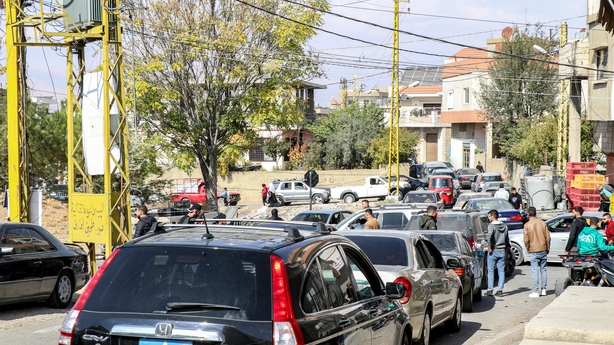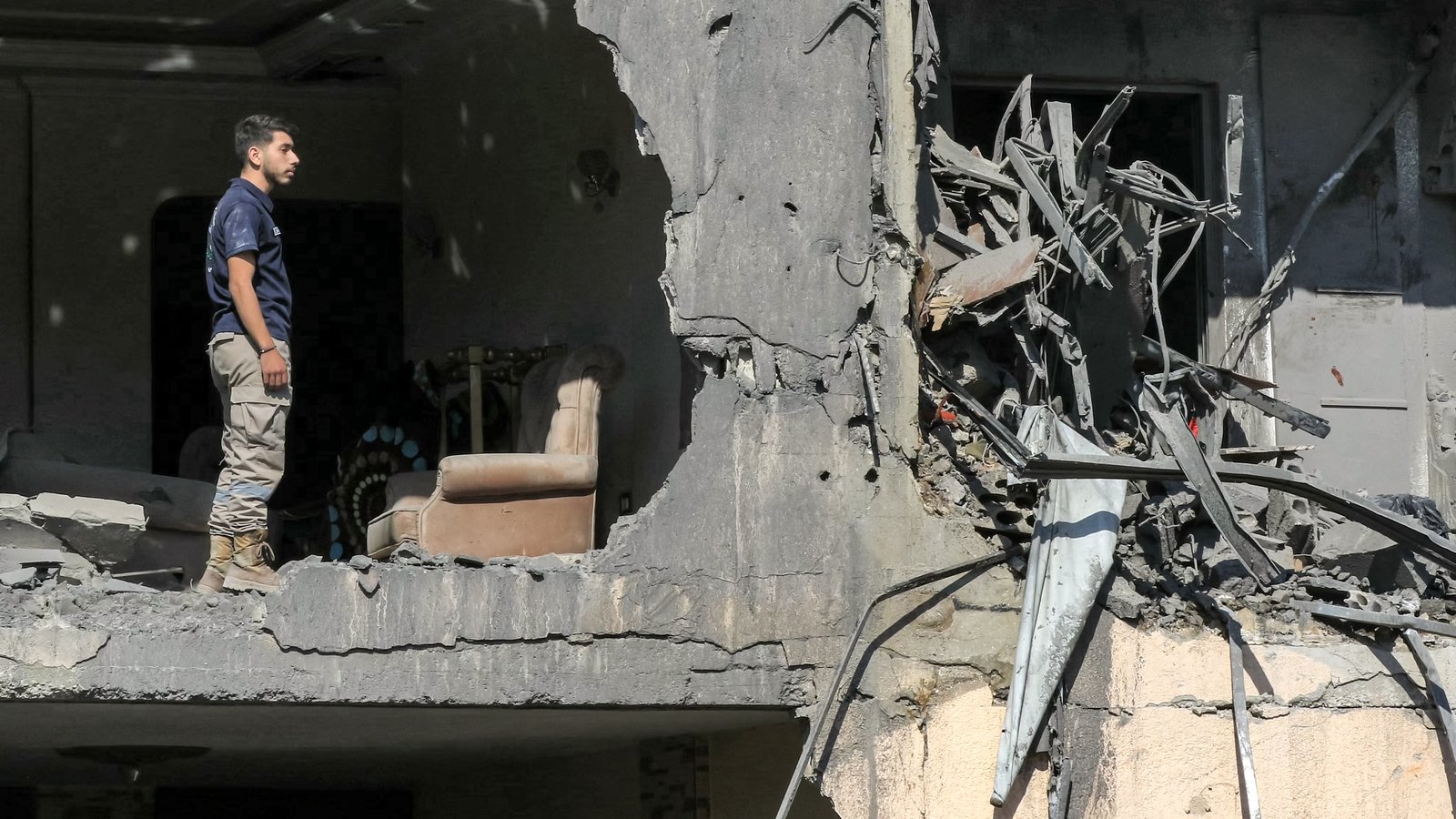The Israeli army said it has killed the deputy head of Hezbollah’s elite Radwan Force, Mustafa Ahmad Shahadi, in a strike in southern Lebanon.
“In an intelligence-directed strike, the Israeli air force struck and eliminated Mustafa Ahmad Shahadi, deputy commander of Hezbollah’s Radwan Forces, in the area of Nabatieh,” the army said in a statement.
It said Shahadi had previously run Radwan operations in Syria and had overseen “terror attacks in southern Lebanon”.
It comes as Israel’s security cabinet is discussing the terms of a truce with Hezbollah in south Lebanon, where Israeli troops are conducting a ground offensive, Energy Minister Eli Cohen has said.
“There are discussions, I think it will still take time,” Mr Cohen, a former intelligence minister, told Israeli public radio.
According to Israel’s Channel 12 television, Israeli Prime Minister Benjamin Netanyahu held talks with ministers yesterday on Israel’s demands in return for a 60-day truce.
These include a pullback from Hezbollah north of the Litani river, 30km from the Israeli frontier, the Lebanese army’s deployment along the border, an international intervention mechanism to enforce the truce and a guarantee that Israel will maintain freedom of action in case of threats.
“Thanks to all the army’s operations these past months and particularly these past weeks … Israel can come in a position of strength after the entire Hezbollah leadership was eliminated and over 2,000 Hezbollah terrorist infrastructures were hit,” Mr Cohen said.
According to Israeli media, US President Joe Biden’s Middle East adviser and special envoy Amos Hochstein will head to the region to meet Mr Netanyahu and other Israeli officials to discuss conditions for a ceasefire with Hezbollah.
The push for a ceasefire for Lebanon comes days before the US presidential election and in parallel with a similar diplomatic drive on Gaza.
The war in Lebanon began last month, nearly a year after Hezbollah began cross-border fire into Israel in support of Hamas following its 7 Octobe 2023 attack on Israel.
The war has killed at least 1,754 people in Lebanon since 23 September, according to an AFP tally of health ministry figures.
However, the real number is likely to be higher due to gaps in the data.
The Israeli military says it has lost 37 soldiers in its Lebanon campaign since it launched ground operations on 30 September.
Meanwhile residents of Baalbek left their homes after the Israeli army ordered Lebanon’s main eastern city and its outskirts evacuated for the first time in more than a month of war.

The Israeli army urged residents of Baalbek and surrounding villages to leave immediately, warning it was preparing attacks on Hezbollah targets.
The main roads out of the city were jammed with vehicles as civilians fled in panic, an AFP correspondent reported.
Civil defence vehicles drove around the city urging everyone to leave immediately over loudspeaker.
“The city is almost empty,” the correspondent said about an hour after the evacuation warning.
“The (Israeli army) will act forcefully against Hezbollah interests within your city and villages,” military spokesman Avichay Adraee said in a post on X.
The post included a map of the entire city in the eastern Bekaa Valley and its outskirts.
The city, which was designated as a UNESCO World Heritage Site in 1984, is home to 3,000-year-old Roman ruins that are the best preserved Roman temples.
On Monday, Lebanon’s health ministry said at least 60 people were killed in Israeli raids on the Bekaa, most of them in the Baalbek region.
Hamas will discuss truce plan that leads to Israel withdrawal
A Hamas official has said the group had not received any proposals for a Gaza ceasefire but would discuss any ideas that include an Israeli withdrawal.
“We have not officially received any comprehensive proposal. We are prepared to engage with any ideas or proposals presented to us, provided they ultimately lead to an end to the war and a withdrawal by the army from the (Gaza) Strip,” the official told AFP.
The official, who preferred to remain anonymous, added that Mr Netanyahu is obstructing truce efforts to push an agenda of “genocide, ethnic cleansing and displacement” made possible by the absence of US pressure.
“We have told the mediators that Hamas is ready if (Israel) agrees to a proposal for a ceasefire, complete withdrawal from the Gaza Strip, return of displaced people to their homes in Gaza including the north, entry of sufficient aid for our people and a serious prisoner exchange deal,” he said, referring to ceasefire conditions Hamas has repeatedly brought to negotiations.
He said that Egypt and Qatar continue to work as mediators in consultations between Hamas and Israel.

